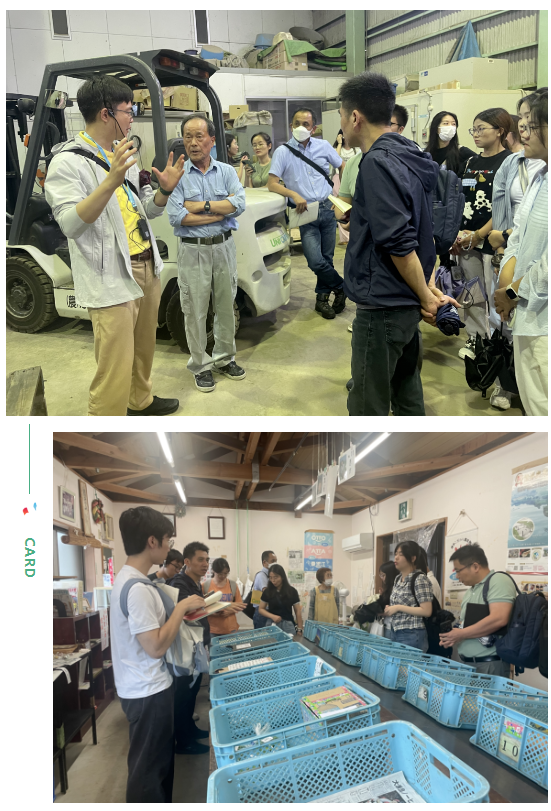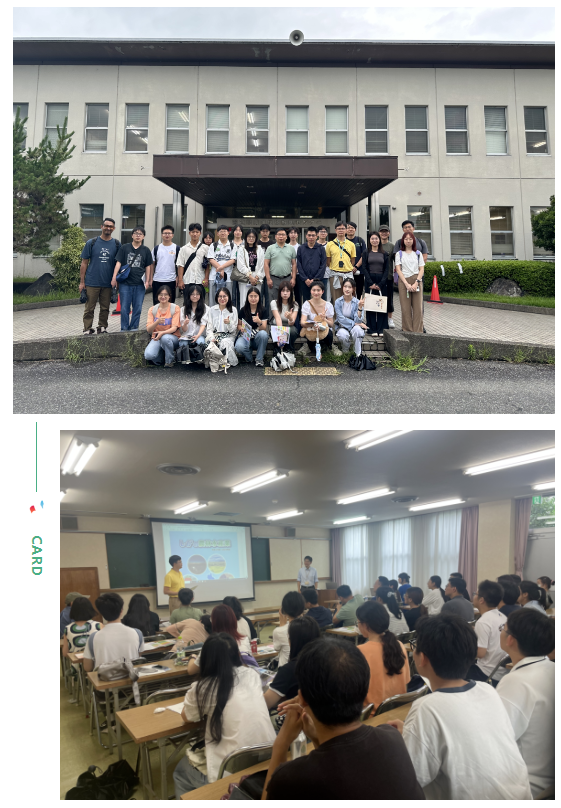Recently, the School of Public Affairs at Zhejiang University, along with the Institute for Rural Development, successfully conducted the sixth phase of the Zhejiang University-Kyoto University "Top-Class Agricultural Economics" international exchange program, which involved a field study of agriculture and rural areas in Japan. The field study was led by Professor Jin Shaosheng,Tenured associate prof. Jin Xin, and Associate Researcher Hu Weibin from the Institute for Rural Development, with a total of 29 participants, including doctoral and graduate students and undergraduate students in agricultural economics. Associate Professor Shen Jinhua from Kyoto University accompanied the delegation.
The field study included visits to various organizations, such as rural cooperative agricultural organizations, agricultural technology promotion centers, agricultural production enterprises, and agri-tourism complexes. On the morning of July 11, the delegation visited a rural cooperative agricultural organization located in Higashiomi City, Shiga Prefecture, Japan. They listened to Mr. Fukushima, the chairman of the organization, who introduced the operation processes of rice drying, husking, and packaging equipment, providing a detailed understanding of the local rice production and processing chain. Following this, the delegation toured the organization’s agricultural product production base and direct sales site. The cooperative's advocated model of "producers and consumers face-to-face" and its emphasis on "safe and reliable agricultural products" left a deep impression on the participants. Finally, a discussion session was held with the chairman, who shared insights on the development history, current achievements, and ongoing challenges faced by the cooperative. Through the presentation and Q&A session, the students gained a deeper understanding of how agricultural organizations in Japan enhance the yield and added value of agricultural products through standardization in farming, the adoption of new varieties and green technologies, and the extension of the processing value chain. They also learned about the challenges these organizations currently face, including falling agricultural product prices, labor shortages, severe aging of the workforce, and the deterioration of machinery and equipment.

On the afternoon of July 11, the exchange group visited the Shiga Agricultural Technology Promotion Center for an engagement activity. The event began with an introduction from the center's director, who provided an overview of the overall agricultural production situation in Shiga Prefecture and the basic structural departments of the promotion center.Subsequently, the head of the Cultivation Research Department shared insights into their work on the development of heat-resistant rice varieties and breeding techniques. The head of the Environmental Research Department then introduced the development of environmentally friendly rice cultivation technologies.During the interactive session, students actively participated and posed numerous questions, creating a lively atmosphere for exchange. Following the discussions, Professor Jin Shaosheng delivered a concluding speech. He used the example of agricultural technology research and promotion in Jiaxing, Zhejiang Province, to illustrate differences in agricultural land conditions, organizational structures of technology promotion institutions, and the allocation of agricultural researchers between Jiaxing and Shiga. Professor Jin outlined the current state of agricultural promotion institutions in China, highlighting their shortcomings and future development directions. His insights greatly inspired students' understanding of how agricultural technology promotion can drive agricultural development.

On the morning of July 12, the exchange group arrived at the Koka City Contract Hall in Shiga Prefecture, where they listened to Mr. Toshikazu Imai, the representative of Ru Sior Farm, discuss the farm's development history, current operations, and future prospects. Mr. Imai began by detailing how, in the context of changes in Japan's dietary structure after World War II, the company evolved from a traditional rice-growing cooperative into a comprehensive agricultural enterprise spanning food service, fast-moving consumer goods, sightseeing, and cultivation, achieving an annual sales figure of 250 million yen. He further introduced the company's management philosophy, "Kinu Ai Raku," along with its operational models concerning direct sales of agricultural products, brand management, and strategies for developing new products aimed at high-end consumers and expanding into international markets. The exchange fostered a lively atmosphere, significantly deepening the students' understanding of modern agricultural business models.
In the afternoon of July 12, the exchange group visited Mokumoku Farm in Iga City, Mie Prefecture. They first toured the various facilities of the farm, after which the farm manager introduced the students to the farm's product research and development, production and processing, agricultural tourism projects, education in agricultural knowledge, product display and sales, specialty dining services, and the integration of agricultural culture and tourism. During the discussion, the farm's unique membership model, contract farming, and direct dining operations sparked enthusiastic questions from the students, creating an engaging environment.

Throughout the two-day field exchange, the agricultural economics students gained deeper insights and reflections on the challenges and responses faced by agricultural powerhouses and rural revitalization, further solidifying their ideals and beliefs. Looking ahead, the Department of Agricultural Economics aims to expand international exchanges, collaborating with more prestigious institutions worldwide to learn from each other, share resources, and achieve mutual benefits, thereby contributing to the high-quality development of agriculture and rural areas.


